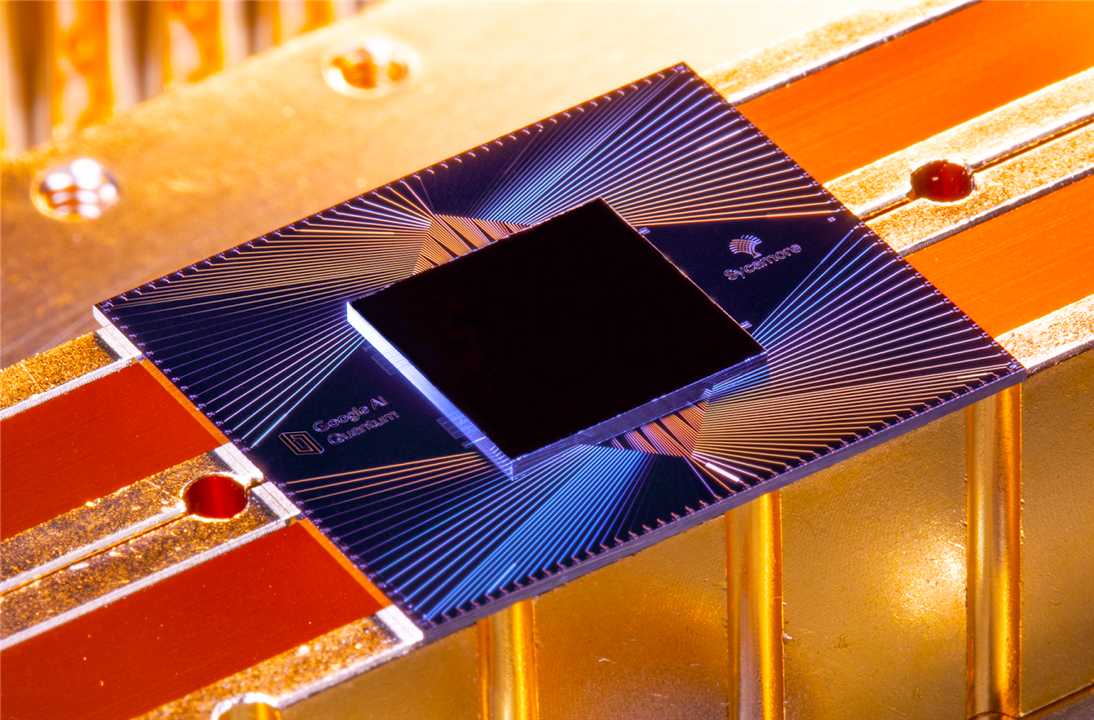
Google’s quantum computer Sycamore processor completed a task that would take a classical supercomputer 47 years to complete. (Image Credit: Google/Erik Lucero)
It looks like Google’s latest quantum computer is taking the prize! According to the company’s scientists, it can perform a computational task in minutes that would otherwise take a traditional supercomputer 47 years. The breakthrough could pave the way toward a quantum computer evolution. Still, the quantum computer is still a mysterious black box.
Google first used Sycamore, a 53-qubit machine, to achieve quantum supremacy in 2019. But now the team upgraded that system, containing 70 qubits this time. With these additional qubits, the computer’s processor is 241 million times more powerful than the initial version. However, coherence times may even impact its performance. The team also says their experiment is meant to address people’s curiosity surrounding the classical vs. quantum debate.
The Google team wrote in the paper, “This intensifying quantum-classical competition motivates two questions: does there exist well-defined boundaries for the region where the exponentially large Hilbert space is, in fact, leveraged by a noisy quantum processor? More importantly, can we establish an experimental observable that directly probes these boundaries?”
They used the quantum computer to perform random circuit sampling and benchmarked it against the world’s best supercomputer, Frontier. According to their results, it took 6.18 seconds to perform a similar calculation as the 2019 Sycamore 53-qubit machine. It would also take 47.2 years for Frontier to match the 70-qubit version’s calculation. The team says this experiment surpasses the one in Chinese labs performed by scientists that claimed to achieve quantum supremacy.
“After estimating the needed computation resources and achievable fidelity bound for improved classical methods, we conclude that our demonstration is firmly in the regime of beyond-classical quantum computation,” the scientists wrote.
So far, the research community has applauded this experiment even though its practical use may raise questions. After all, quantum experiments conducted in the past have always carried criticism regarding their practicality. For instance, many people won’t need random circuit sampling but will require more affordable pharmaceuticals.
With quantum computing and AI advancements down the road, people may start wondering if there’s any room left for humanity in the future. After all, these two technologies can benefit our world and shape society. But even then, quantum technology can improve AI by allowing it to complete tasks more quickly and efficiently while also introducing innovations. That doesn’t mean humans are expected to become irrelevant as we watch AI overtake our tasks. Instead, it can be used as a tool to improve human capabilities and optimize industries.
Have a story tip? Message me at: http://twitter.com/Cabe_Atwell
